
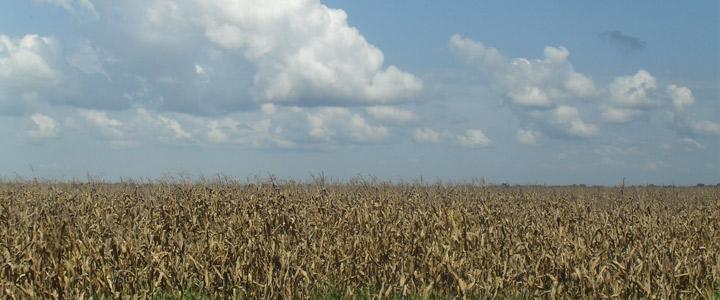
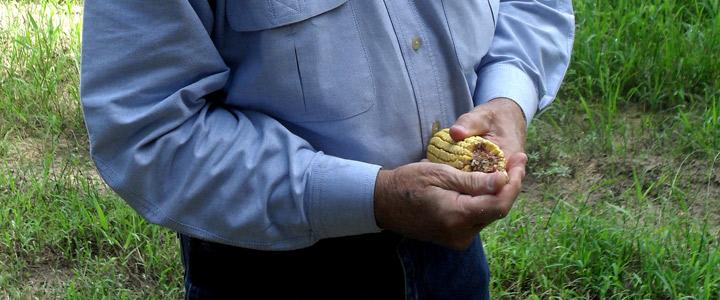
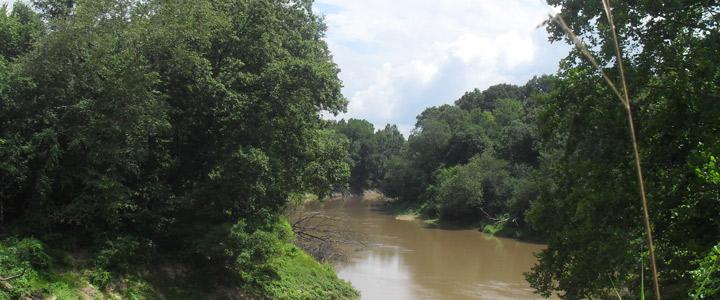
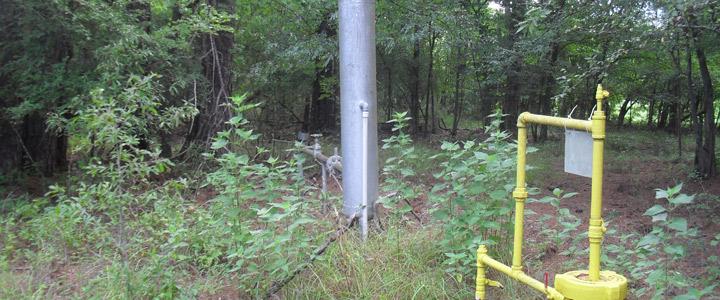
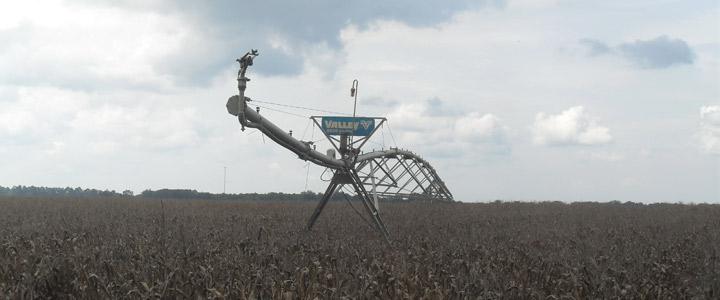
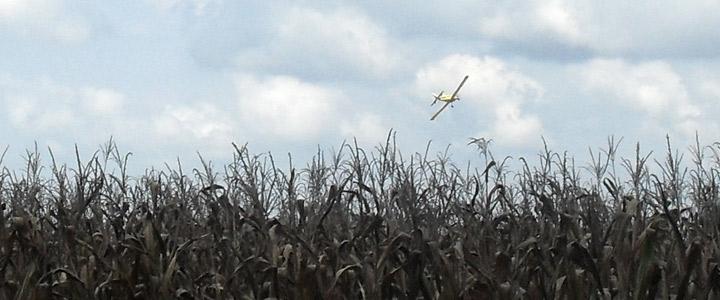
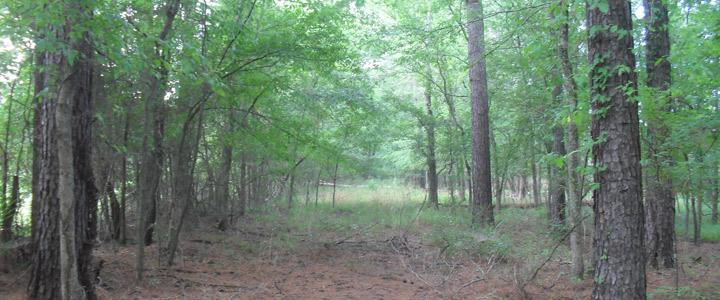
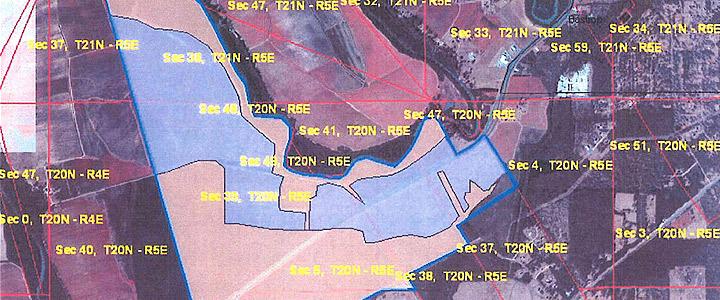
Corn Field ready for Harvest
Lannie Philley, AFM, Manager of Delta Land and Farm Management
Bayou Bartholomew, the longest stream in the world
Natural Gas Well
Irrigation Equipment on Corn Field
Crop Duster spraying the Soybean Field on the other side of the Corn Field
Timber Stand
Aerial view of Spyker property
The 1725 acres of corn, soybeans, and timber in nearby Morehouse Parish have been planted and worked for nearly 160 years. They are one example of how a university’s greatest gifts might come from its friends, alumni, and supporters within the community. An institution’s main priority, in fact, is to benefit the community that supports it. For this reason, the university prides itself in these partnerships with those in the ULM family, each of whom have helped it strive for excellence.
The property’s origins stretch back to 1857 when planter, Leonidas Spyker, left his home at Hard Times Plantation in Bossier for Morehouse Parish. Spyker details the winter trek which took nearly three weeks to complete in his diary, one of the initial Spyker gifts to the university. Aside from the journey, the diary chronicles weather patterns, crop yields, and the goings-on of New Hope plantation. The diary even contains poetry; scrawled amid memos and figures on its first few pages. It is available for viewing at the ULM library.
New Hope flourished until the outbreak of the Civil War, which eventually “played havoc” with Spyker’s finances and forced him to once again relocate. He moved to New Orleans in 1861 and prospered there as a cotton broker (Spyker & Johnston, 349). Although Spyker resided there until his death, he kept New Hope intact, and it was inherited by his grandson, Fouche Spyker. New Hope later passed to his daughter, Helen. However, it was Pauline Spyker Johnston, Helen’s aunt, who would suggest that the property should be left to the university. Helen left the estate to the ULM Foundation in 1980, while leaving the income from the mineral rights to her mother. Hanna would later leave the remaining income from the mineral rights to the Foundation. The estate’s worth was estimated at $2.5 million dollars.
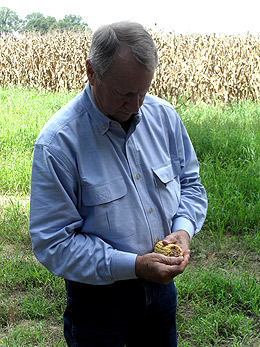
Lannie Philley, AFM, Manager of Delta Farm and Land Management
With this gift, the Foundation began to develop plans to put the land to use. There were already 525 acres cleared for planting, so row crop farming became one of the first operations on the Spyker Property and continues to this day. In addition to farmland, the property contains nearly 100 natural gas wells, and was the first site to be drilled in what is now known as the Monroe Gas Field. The property also contains 1200 acres of timber and wetland. In 2002, the Office of Forestry prepared a management plan for this acreage in order to maintain optimum conditions for the property’s forestry-related natural resources. Bordering on Bayou Bartholomew, the longest stream in the world, the land supports a variety of wildlife. Approximately 800 acres are leased to the Stalking Head Hunting Club. There are also 100 acres on the lot that have been used for gravel extraction. Today, the Spyker Farm is leased to Webb Holley, who oversees his farming operation with the help of his father, Boyd. The ULM Foundation’s portion of the farm profits are a part of the self-generated funding used to support the university, which helps minimize the effects felt from state budget cuts to higher education.
In addition to generating financial benefits, there are plans for the Spyker Farm to benefit students in the ULM Agriculture program. Lannie Philley, AFM, Manager of Delta Farm and Land Management, contributes his expert oversight of the farm. Lannie believes the farm would best serve as a tool for teaching students not only about cultivation, but also the business aspects of farming; including budgeting, land management, marketing, and crop sales.
However, land and crops are not the only gifts from the Spyker family with which the foundation has been entrusted. With the donation of historic family land, the Spykers’ history has now become a part of ULM’s history, and we are proud guardians of their legacy. In addition to the farm, endowment, and scholarship that bear the Spyker name, the campus theatre auditorium was renamed Spyker Theatre in 1983, as a humble expression of the university’s appreciation of the Spyker family and their contributions to the college’s well-being. More than a simple gift, the Spyker Farm is a valued resource that will continue to benefit the university and it students for years to come. The ULM Foundation is grateful for the generosity and support of the Spyker family, and continues to maximize the gift’s potential for the good of ULM, its students, and the community.
by Zach Johnston, MA English 2017 August 16, 2016
Works Cited
Spyker, Leonidas P. & Pauline S. Johnston. The Diary of Leonidas Spyker, 1856-1936.